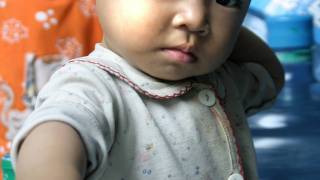Will Boulder Students Be Prepared For an Epidemic?

Every state, local and federal public health agency says children should be appropriately vaccinated, says the Boulder Weekly.
And if you don’t vaccinate, you’re required to notify your child’s school that you didn’t vaccinate and allow your child to be quarantined in the event of a vaccine-preventable disease outbreak, such as measles, polio, pertussis or diphtheria.
The Colorado Department of Public Health and Environment (CDPHE) estimates vaccines save the lives of 3 million children every year, and it encourages every parent to vaccinate their children.
Instead, this is a story about why Boulder County persists in having some of the lowest child vaccination rates in the country, said Matt Cortina, with the Boulder Weekly.
Some Boulder schools report less than 50 percent of their students are fully vaccinated, reported the Denver Post.
“A lot of what we are trying to do is because there’s so much misinformation and fear about vaccines out there,” says Teresa Luker, Boulder County’s immunization program coordinator.
“It confuses some people, especially new parents.”
“We just try to provide an avenue to encourage anybody who is unsure just to talk to their healthcare provider about their concerns so they are fully understanding how vaccines work and the risk from getting a vaccine versus getting a vaccine-preventable illness,” said Luker.
“In Boulder, the largest reason for vaccine skepticism is a mistrust of pharmaceutical companies and what people see as non-natural ingredients,” says Lindsay Diamond, PhD., Director of Communication at the University of Colorado.
Dr. Diamond says, “Boulder has an organic, natural lifestyle.”
“And now you’re presented with this preventative medicine, but it’s filled with ingredients you otherwise wouldn’t choose for yourself.”
“By and large, our vaccine rates reflect the decisions of generally affluent, well-educated, Caucasian populations. Not surprisingly there isn’t a lot of government funding to tackle that problem,” Dr. Diamond said.
Students in Colorado are required to get a panel of vaccines before attending classes.
However, Colorado parents can easily opt-out either through a valid medical exemption or a personal/religious exemption.
Getting a personal/religious vaccination exemption in Colorado is as simple as filling out a form and submitting it to the CDPHE.
A parent or guardian completing this CDPHE form can opt out of any or all of the required vaccinations. But, the Colorado Board of Health requires parents/guardians to complete the waiver each year.
According to the Centers for Disease Control and Prevention (CDC), a certain amount of any population needs to be vaccinated in order to achieve what’s known as ‘herd immunity’.
A low herd immunity rate may allow a disease to enter a community, and affect both vaccinated and unvaccinated children.
“Measles and other vaccine-preventable diseases are easily spread, and so if one person gets it and brings it into a community that has not met a herd immunity quota, it could create a health crisis,” said Dr. Diamond.
“I think it’s really hard to convey the messaging that the difference between 85 and 89 percent is the difference between major gaps in public health and [total community] health, said Dr. Dimmond.
The CDC plays a pivotal role in ensuring that state and local public health systems are prepared for public health emergencies.
The CDC’s Office of Public Health Preparedness and Response funds preparedness activities to state and local public health systems through the Public Health Emergency Preparedness cooperative agreement.
Additionally, the CDC works to enhance medical countermeasure readiness nationwide to effectively respond to large public health emergencies needing life-saving medications and medical supplies.
But who declares an infectious disease outbreak?
Under the Robert T. Stafford Disaster Relief and Emergency Assistance Act, the President may declare an emergency at the request of a state governor or a Chief Executive of an affected Indian Tribe.
The president can also declare an emergency without a Gubernatorial request if the primary responsibility for response rests with the Federal Government.
Additionally, the HHS Secretary may, under section 319 of the PHS Act determine that an infectious disease presents a public health emergency.
“What society really needs is a universal flu vaccine that protects people against every variant of the virus and provides long-term protection, just as the vaccines against measles and mumps do,” said Dr. Anthony Fauci, director of the National Institutes of Health.
“It’s hard to overstate what a win that would be. No more worrying about strain mismatches or annual injections.”
“It would be the epitome of preparedness, and we have committed resources to develop protections for our children,” Dr. Fauci says.
Our Trust Standards: Medical Advisory Committee

























